Source: SCMP (5/8/20)
Post-internet art: 5 Chinese artists taking aim at country’s digital world
Virtual identities, data security, internet love and government censorship all come under the scrutiny of China’s popular post-internet artists. Artist Miao Ying created a spoof website mocking the Chinese government’s 2015 ‘Internet Plus’ strategy for an exhibition in New York.
By Aina Bhargave
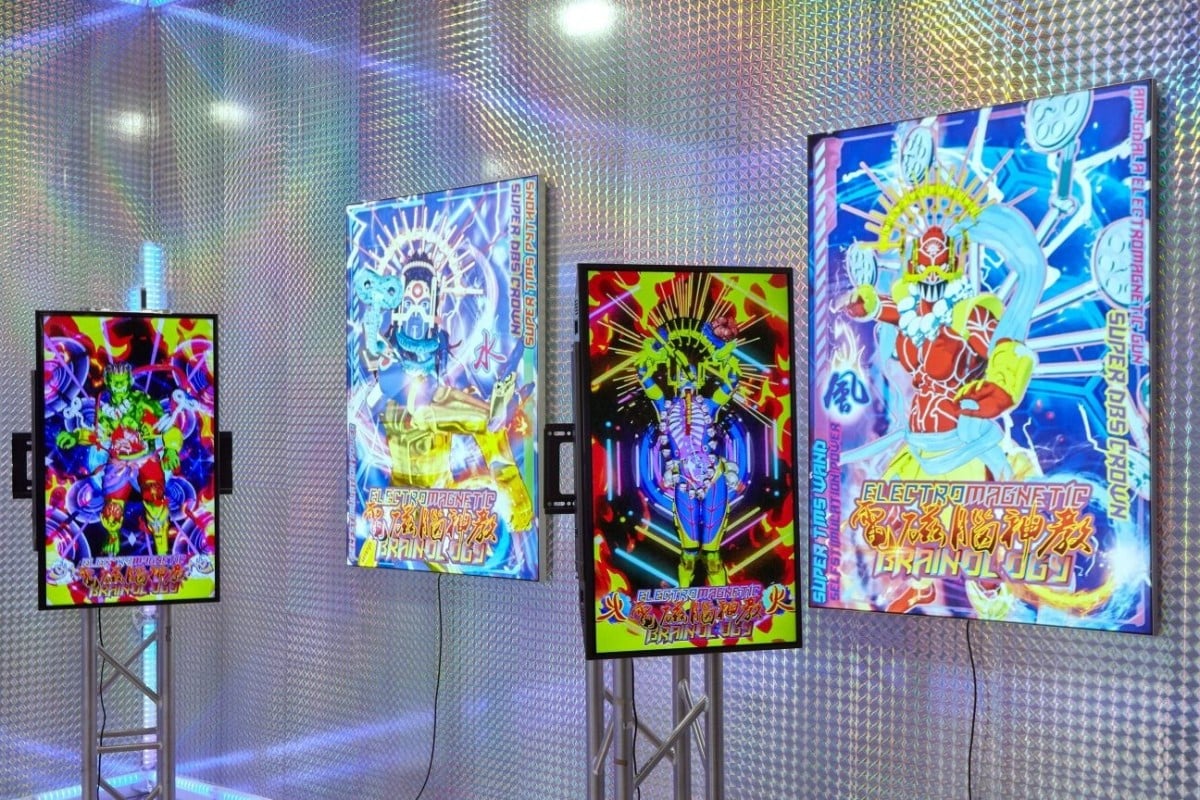
Part of Cyber Altar (2019) by Chinese post-internet artist Lu Yang at Art Basel Hong Kong 2019.
China has more internet users than any other country in the world who have to constantly deal with issues including the proliferation of fake news, data security and government censorship. These challenges are being expressed in the country’s art world, through the rise of what is known as “post-internet” art.
Here are five post-internet artists who, having grown up in a tech-transformed China, are making waves on the Chinese and international contemporary art scenes for their use of digital mediums as well as their fresh, critical takes on all things online.
Lu Yang
Born 1984. Lives in Shanghai
Lu’s works – loud, in-your-face Technicolor explosions – are hard to miss and have captivated art audiences around the world. If you attended Art Basel Hong Kong last year, you would have seen her installation Cyber Altar (2019) at Societe Berlin’s neon-lit booth, which resembled a 1980s video game arcade.
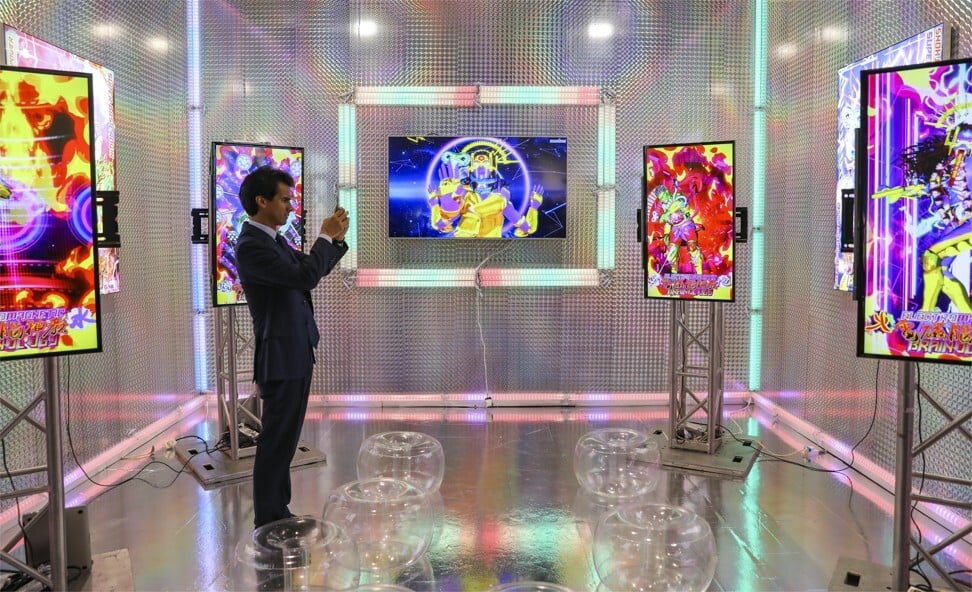
Cyber Altar (2019) by Lu Yang at Art Basel Hong Kong 2019. Photo: K.Y. Cheng
Lu infuses themes from science, pop culture, sexuality and religion with elements of gaming to create video-based work featuring different genderless avatars of herself inspired by anime and manga iconography – outlandish virtual spins on the classic self-portrait. Embracing a kitsch aesthetic, she addresses the ability to create, control and define a virtual identity for one’s self on the internet.
Aaajiao
Born 1984. Lives in Beijing and Berlin
Computer software forms an integral part of Aaajiao’s practice. The artist, real name Xu Wenkai, was one of the first in China to use 3D digital graphics in his work. He delves into the human need for connectivity and validation sought through digital means.
Two cyborgs take centre stage in his video I hate people but I love you (2017): one in the form of a female android, and the other as a looping stream of pop-up windows. A deadpan conversation takes place between the two – a dystopian image of love and dating in the social media age.
Aaajiao also investigates the use and dispersal of data and how its meaning is generated and perceived through various digital forms.
Miao Ying
Born 1985. Lives in New York
Miao investigates the effects and flaws of China’s “Great Firewall”, or internet censorship, with a healthy dose of humour.
In 2016, she created an online exhibition (a fairly novel concept pre-Covid-19) for New Museum in New York titled Chinternet Plus. The work is a spoof website of the Chinese government’s “Internet Plus” strategy from 2015, which essentially sought to tackle China’s economic slowdown at the time through a fully digital initiative.
Miao believed the idea was “all style, no substance” and ran with that theme, creating a website full of nonsensical language and GIFs that could not be easily censored in China. The work has been widely shared on online platforms like WeChat, the Chinese messaging app.
For Love’s Labour’s Lost (2019), Miao filmed herself picking “love locks” attached to a metal railing in Paris. The piece is meant to serve as a metaphor for using VPNs (virtual private networks) to get around the Great Firewall and access the global internet. Its partner piece, Love’s Little Wall, is a wooden sculpture with railings shaped like a heart with a photo of the Great Wall of China on it. Love locks adorn the outside – the same ones taken from Paris.
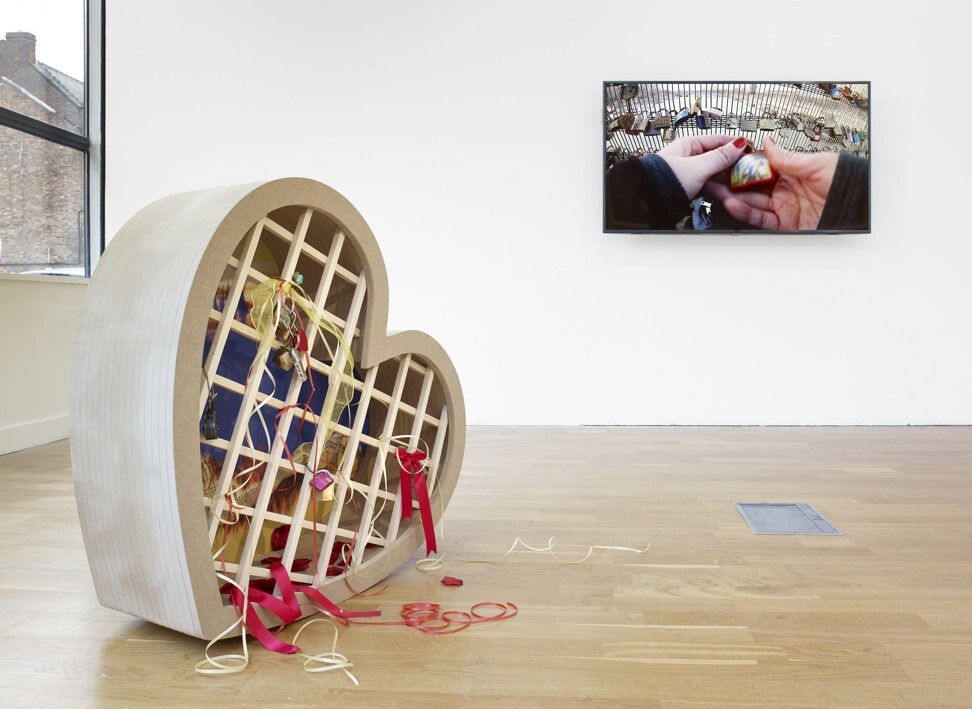
Love’s Labour’s Lost (video, right) and Love’s Little Wall (both 2019) by Miao Ying at Manchester’s Centre for Chinese Contemporary Art. Photo: Michael Pollard
Miao’s exploration of internet censorship has in turn resulted in her work being censored – only proving her point and making her practice all the more significant.
Lin Ke
Born 1984. Lives in Shanghai
Lin homes in on how jaded we’ve become through overexposure to information and images – whether switching from tab to tab or mindlessly scrolling through social media feeds, the experience becomes an aimless one. He uses screen recording software and takes screenshots to document his own browsing behaviour, providing material for his works.
Like Me / 比如我 from linke waco on Vimeo.
In Like Me (2016), a video in which the artist raps quotes from old Star Trek episodes, he highlights the limitations and futility of internet browsing. Some of the lyrics eerily predict our present: “When dreams become more important than reality, you give up travel, building, creating … you just sit, living and reliving other lives left behind in the thought wreck.”
Ye Funa
Born 1986. Lives in Beijing
Ye Funa explores changes in cultural identity through constant exposure to media. Like Lu, her aesthetic is colourful and kitschy and her works often incorporate virtual and historical characters.
For last year’s “Chinternet Ugly”, an exhibition held at Manchester’s Centre for Chinese Contemporary Art, she created a visually arresting selfie set – Beauty Plus: Save the Real World (2018) – that addresses our constructed digital versions of reality.
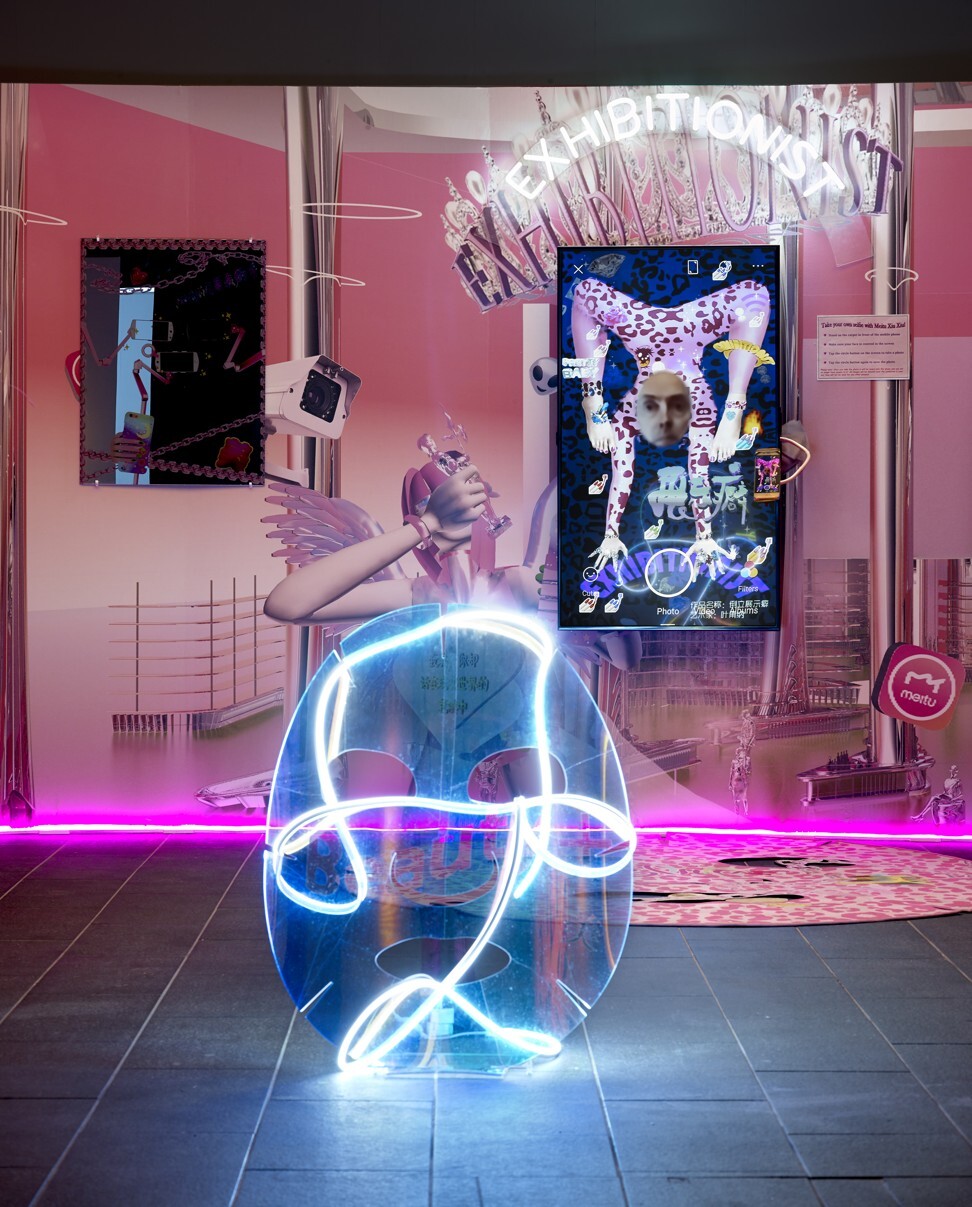
Part of Beauty Plus: Save the Real World (2018) by Ye Funa at Manchester’s Centre for Chinese Contemporary Art. Photo: Michael Pollard
Featuring mirrors adorned with tacky neon lights and a large sign reading “exhibitionist”, the installation is a commentary on Meitu XiuXiu, the popular Chinese app used to filter and “improve” selfies. She exposes our desire to perpetuate enhanced unrealistic versions of ourselves on social media.
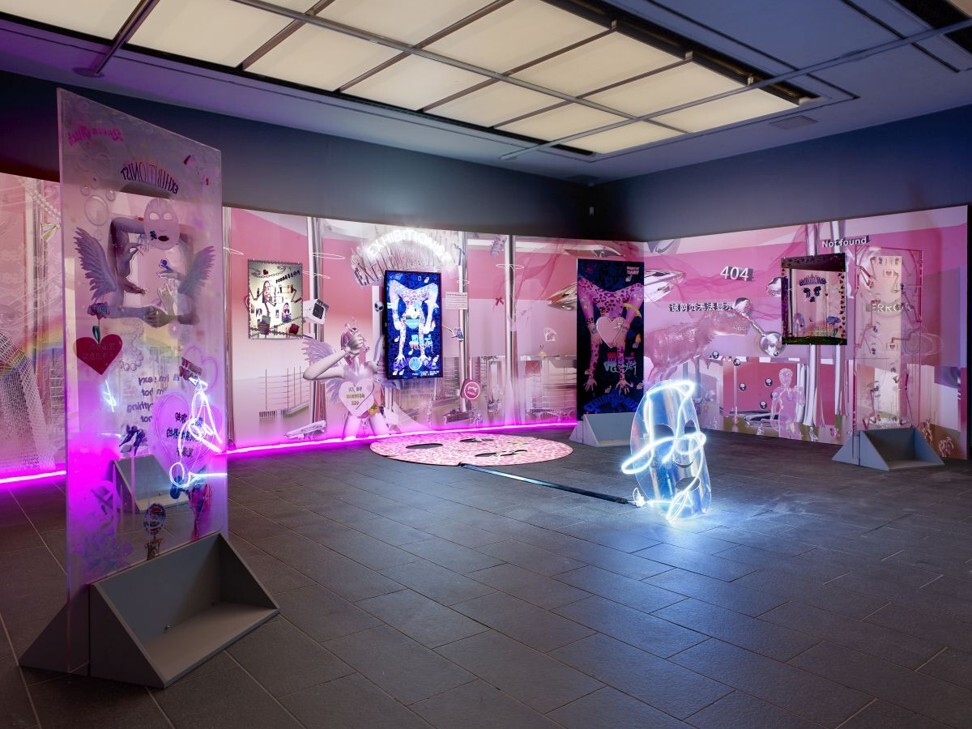
Beauty Plus: Save the Real World (2018) by Ye Funa at Manchester’s Centre for Chinese Contemporary Art. Photo: Michael Pollard
The app is also one of the world’s largest facial databases, containing more than 1 billion images, conveying the power of data held by app developers.